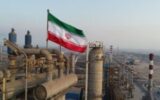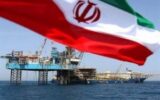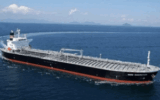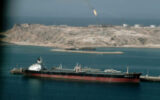
During the 12 days when Iran's skies were facing the Zionist regime's invasion and the imposed war, the oil industry worked in a chain reaction and did not tremble, but stood firm. It stood firm and did not let a single light go out or a shortage arise in the country's fuel supply.

Despite the conflict between Iran and Israel, contrary to the claims of the Zionist regime's media, Iran's oil exports not only did not decrease, but also remained at a level of about 2.2 million barrels per day, according to Kpler data.

The Strait of Hormuz, a vital artery for global energy exports, remains an irreplaceable bottleneck. Any disruption to the flow of oil through this route would alter the geopolitical equations of energy; despite efforts by countries to design alternative routes, none are able to cover the crisis.

Following the recent attacks by the Zionist regime and the emergence of emergency conditions in the region, Pardis Petrochemical Company suspended the production of three operational phases of ammonia and urea in order to protect the safety of personnel and reduce possible losses. This suspension was officially announced in a company announcement, and its financial effects are being reviewed.

According to data received from tanker trackers, China imported an average of 1.38 million barrels of oil per day from Iran in the first half of 2025, equivalent to more than 13.6 percent of the country's total oil imports.

A Russian official warned about the closure of the Strait of Hormuz that no one will be immune from this action.

Following the escalation of tensions between Iran and the United States, two super-heavy oil tankers named Coswisdom Lake and South Loyalty, each with a capacity to carry 2 million barrels of crude oil, changed their course near the Strait of Hormuz and retreated south.

The US attack on Iran's nuclear facilities and official participation in the Israeli operation is the largest military action by the West against Tehran since the 1979 revolution. Despite the renewed missile barrage by Iran on Israel, there has been no decisive response to the United States yet. However, the initial positive vote by the Iranian parliament to close the Strait of Hormuz has sounded the alarm bell for the global oil market.

Approximately 30 percent of the world’s oil and a third of the world’s LNG (liquefied natural gas) pass through the Strait of Hormuz every day. With tensions escalating between Iran and Israel and the US joining the war, closing the Strait of Hormuz is one of the options on the table for Iran to pressure its enemies, a move that would immediately reduce global oil supplies and drive up prices.

The CEO of Italy's Eni said the oil market has shown no signs of concern about the closure of the Strait of Hormuz and prices have not yet reached levels above $80. He said the closure of the Strait would primarily harm Iran and increase the likelihood of US intervention.










